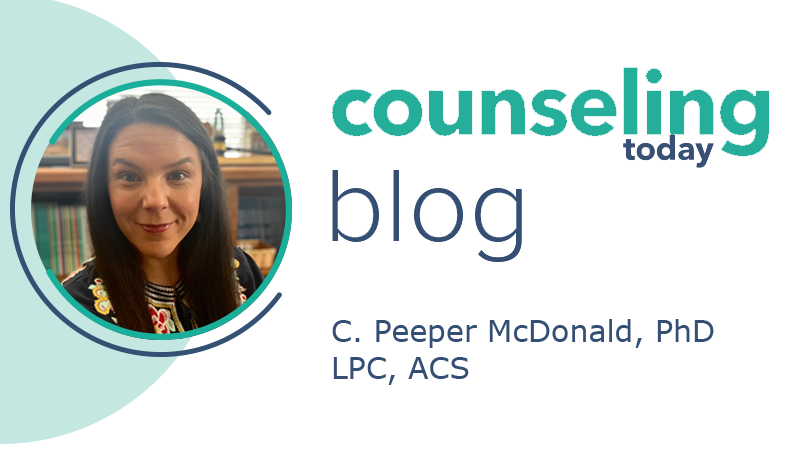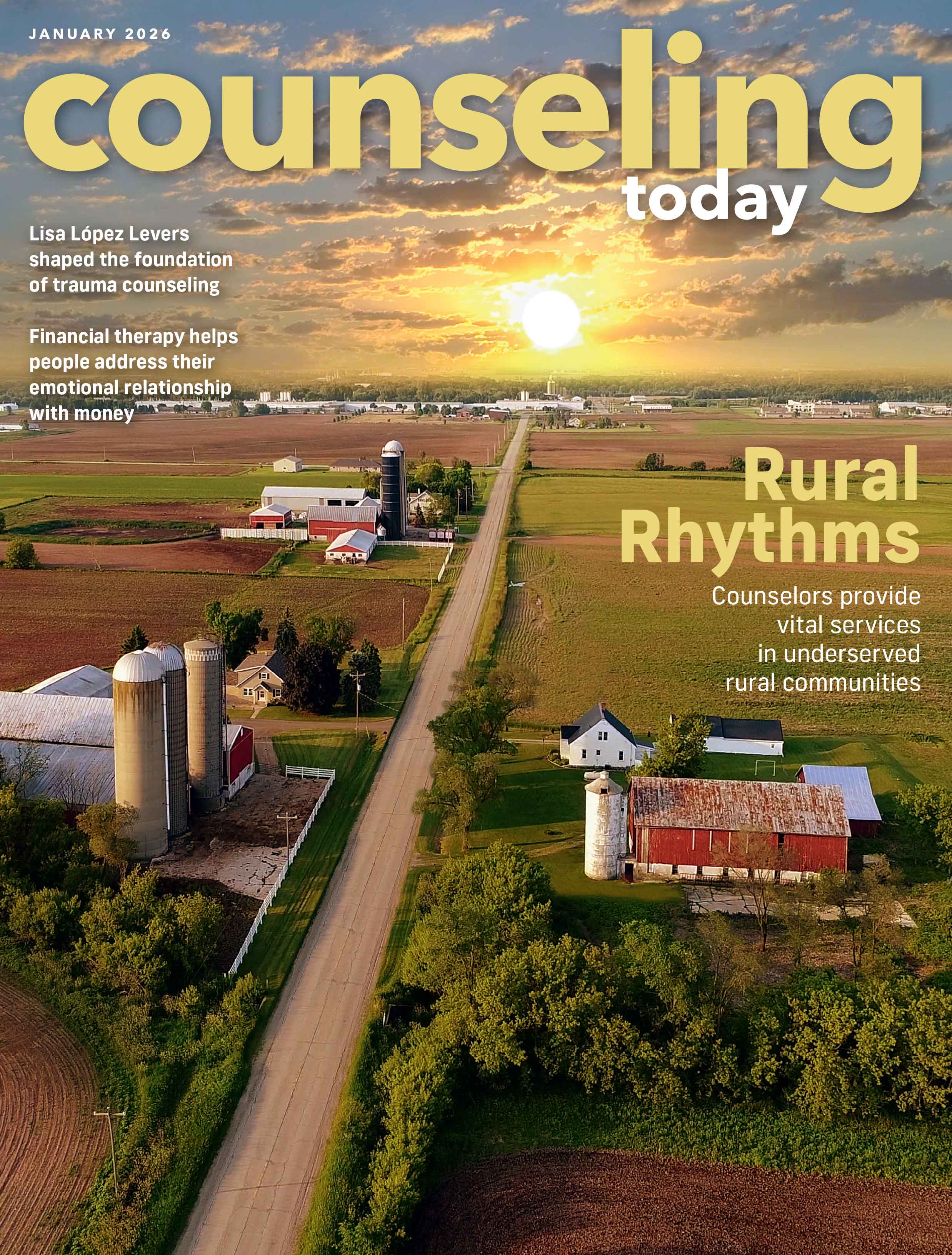Making Multiracial Identities Visible with Culturally Responsive Counselors
By C. Peeper McDonald, PhD, LPC, ACS
 Multiracial individuals continue to be underrecognized in counseling and broader society, often forced into monoracial categories that do not reflect the fullness of their identities. As a biracial counselor who has experienced this firsthand, I’ve witnessed how well-meaning professionals can unintentionally contribute to this erasure. Instead, counselors can use practical strategies to validate and affirm the complex identities of multiracial counseling participants. Taking it a step further, counselors can reimagine themselves working with participants as opposed to clients. This reflects a more collaborative, person-centered approach that aligns with marginalization sensitivity within the counseling framework.
Multiracial individuals continue to be underrecognized in counseling and broader society, often forced into monoracial categories that do not reflect the fullness of their identities. As a biracial counselor who has experienced this firsthand, I’ve witnessed how well-meaning professionals can unintentionally contribute to this erasure. Instead, counselors can use practical strategies to validate and affirm the complex identities of multiracial counseling participants. Taking it a step further, counselors can reimagine themselves working with participants as opposed to clients. This reflects a more collaborative, person-centered approach that aligns with marginalization sensitivity within the counseling framework.
Why This Matters for Counselors
The marginalization of multiracial individuals stems from systemic, historical and social forces that simplify racial identity into neat boxes. In the counseling room, this shows up as racial mislabeling, limited intake options and assumptions that counseling participants identify with a single racial group. Such oversights can undermine therapeutic rapport, trigger microaggressions and hinder counseling participants’ identity development. As counselors, we are ethically called to recognize and address these dynamics, not only through personal awareness but through direct action in our practice and institutions.
Here are some practical strategies to help counselors enhance their cultural responsiveness and advocacy:
- Expand Intake and Assessment Practices
Offer open-ended race/ethnicity fields on intake forms, allowing counseling participants to define their identities in their own words. Ask counseling participants how they identify and how they experience their racial identity in different contexts. Try to avoid assuming a counseling participant’s identity based on their appearance or surname. - Maintain Continuous Dialogue
Initiate and revisit conversations about identity throughout the therapeutic relationship. Approach normalizing the complexity of the situation by acknowledging that racial identity can shift across contexts and over time. To invite dialogue, use phrases such as, “I want to make space for how you experience your racial and cultural identities.” - Address Internalized Marginalization
Explore how societal messages have shaped counseling participants’ understanding of their identities. Aim to assist them in building cohesive personal narratives that reflect all aspects of who they are. Be sure to affirm the validity of multiracial identity and resist the pressure to simplify or compartmentalize. - Prioritize Professional Development
Seek out workshops, books and research on multiracial identity development that will expand your professional knowledge. Follow counselors, scholars and creators who center multiracial perspectives on social media. Research personal newsletters or podcasts to subscribe to their content. Consider how theories of racial identity development need adaptation to fully address multiracial experiences. - Advocate for Institutional Change
Encourage your workplace or school to revise demographic forms and language to include multiracial identities. Include multiracial perspectives in case studies, classroom examples and supervision discussions. Try to challenge media portrayals and curriculum materials that reinforce monoracial norms. - Support Without Overstepping
Counselors often walk a fine line between supporting students, supervisees or counseling participants and unintentionally speaking over them. Respecting autonomy and practicing cultural humility are key. Rather than assuming expertise, invite people to explore their experiences and validate those experiences without reducing them to pathology.
Counselors are uniquely positioned to address the invisibility of multiracial identities by integrating culturally humble practices into everyday work. Whether through intake forms, clinical conversations, supervision or institutional advocacy, small changes can have a profound impact. When we affirm the complexity of counseling participants’ identities, we affirm their humanity and fulfill our ethical duty to foster inclusive and empowering spaces for all.
Note: Opinions expressed and statements made in this blog do not necessarily represent the policies or opinions of ACA and its editors.

